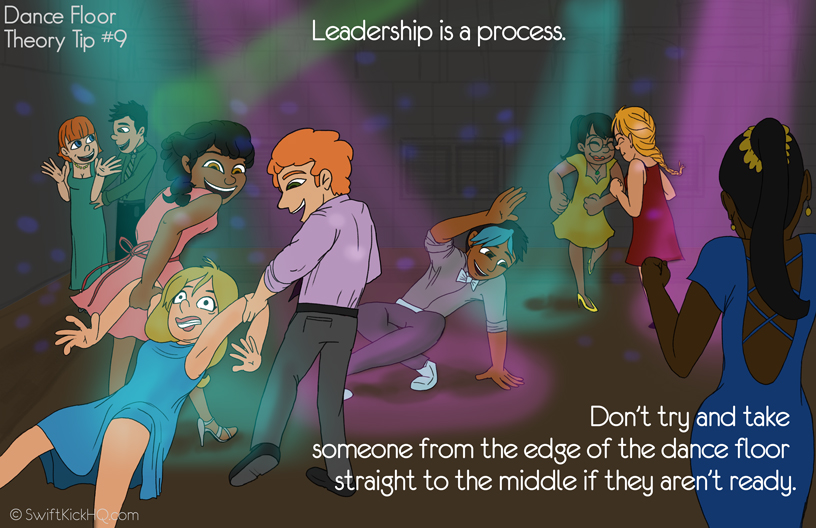The beginning of the academic year is a time of transition. Anxious freshmen are trying to find their niche in a new environment. Upperclassmen want to try something new, maybe develop an interest they’ve discovered over the past year or two.
To a student leader, the beginning of the year is a crucial, crucial point, a window of excitement and opportunity that presents itself at a preordained period every year-kind of like Christmas, just 30 days long. Your fellow students are interested in you and what you do. They
want to get to know you, and they want to know what you’re about. So they take a flyer, write down a date for an organizational meeting, and before you know it, you have a packed classroom full of people. You’re excited, they’re excited, but suddenly you’re hit with the realization that at least half of these people won’t be at meetings a month or two from now.
It’s difficult to maintain everyone’s enthusiasm when people’s expectations have the potential to vary greatly. However, with the right tactics and a little bit of something extra, you can maximize your student organization involvement and work to increase its focus and membership beyond the initial hype.
Have an open door policy: A student organization is only as good as the people in it. Part of your responsibility as a student leader is to be open to student feedback. A good way to start is by asking people what they’re interested in, and what drew them to your organization.
Follow through: If you invite suggestions (or criticisms), do your best to act on them, insofar as they fall under the mission of your organization. Nothing will turn a new member off more than the feeling that their ideas are unappreciated or not taken seriously. If you are not personally in a position to put their ideas into action or are saddled with other responsibilities…
Delegate: One of the best things I did in a leadership position is to allow my fellow students to implement their own ideas. This allows them to take a larger role in the environment they’re striving to be a part of and gives them valuable experience, while at the same time allowing you to handle your responsibilities as a leader (and more importantly, as a student) more effectively. If you or your members don’t feel 100% comfortable, offer to step them through the process, and make sure they’re filling out the proper forms and going through the proper channels. N.B.: Make sure that students save their receipts. One of the major pitfalls I had as an RA was when one of my residents did a program and lost her receipts, forcing her to foot the bill for a $50 event without reimbursement.
Go Outside the Meetings: My favorite organization at Fordham is and was the Contemporary Science Fiction club or CSF for short (hi guys!). One thing that CSF does is reinforce the community feel of their organization by having dinner together after each meeting, and having casual game nights on an extra night during the week. My choir E-Board would have our meetings in the cafeteria, and would welcome members to stop by and join us. Ideas are brought up and common interests are explored. Even if the members of your organization don’t go to these types of things, it’s important for students to know that they exist, and that you are available outside of a regularly scheduled meeting.
———
Matt Windels is a 2013 graduate of the Fordham College at Rose Hill Honors Program with a BA in both Spanish and History, and a Queens, New York native. While at Fordham, he was heavily involved with The Office of Residential Life, working as an RA for his junior and senior years, and with the Rhythm of Praise Choir, serving as Treasurer during his senior year. Matt is looking to begin his career as an educator in order to teach his beloved Spanish.




